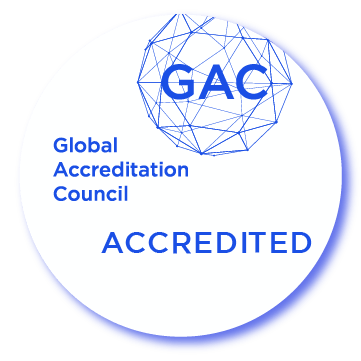
Course Description:
This course introduces you to the tools used by the world’s best thinkers and will exemplify the activities and practice you can use to emulate them. With enough practice, you too will become the best thinker you can be. Your coursework will introduce you to the tools of mind that will help you reason through any of the problems and issues you face, whether in the classroom, in your personal life, or in your professional life. If you take these ideas seriously, and practice using them, you will be able to take command of the thinking that drives your quality of life.
Learning Outcomes:
By the end of this course you should be able to:
- understand the importance of fair-minded critical thinking in the cultivation of fair-minded critical societies;
- understand universal intellectual standards and their importance in human reasoning;
- articulate and exemplify the primary concepts in critical thinking and how they can be used as tools for understanding and improving human reasoning;
- articulate understanding of the problem of media bias and propaganda as a barrier to critical thought in human societies; and,
- understand ethical reasoning and the differences between ethics and other modes of thought, including religion, social ideologies, politics, and the law.
Faculty:
Linda Elder, PhD is an educational psychologist and a prominent authority on critical thinking. She is President of the Foundation for Critical Thinking, and Executive Director of the Center for Critical Thinking. Dr. Elder has taught psychology and critical thinking at the college level and has presented to more than 50,000 educators at all levels. She has co-authored four books, including, “Critical Thinking: Tools for Taking Charge of Your Learning and Your Life,” “Critical Thinking: Tools for Taking Charge of Your Professional and Personal Life,” and, “30 Days to Better Thinking and Better Living.” She has co-authored 24 Thinker’s Guides on critical thinking.
Course Modalities:
Non-Credit Options
Lite Level – This course is delivered on-demand with no faculty interaction and is perfect for lifelong learners who want to go at their own pace and who are not interested in academic credit but still want to experience the course.
Audit-No Credit – If you would like to participate when this course is offered in our Live Virtual Classroom mode, you may attend the live faculty webinars but will not be required to submit assignments for credit.
If you take a few courses and decide you want to officially enroll in a degree program, you can gain academic credit for Lite versions or Audit-No Credit versions by paying the difference between these course fees and a normal academic fee, successfully completing quizzes, submitting your reflection journals, and delivering a Final Creative Assignment that will be graded.
For-Credit Options
Live Virtual Classroom: Study that takes place within Ubiquity University, in which Ubiquity academic coursework is accomplished through attendance in Live Webinars, with faculty and student interaction being a part of the Live Webinar content. To receive academic credit, you must not miss more than 3 live sessions, you must complete the quizzes and submit any other required assignments (if any), and a final creative assignment for grading at the degree level you are enrolled in.
Internal Online Independent Study: Study that takes place within Ubiquity University, in which Ubiquity academic online coursework is engaged in independently on one’s own and does not include faculty interaction. To receive academic credit, you must complete the quizzes and submit your reflection journals and final creative assignment for grading at the degree level you are enrolled in.
The rules guiding our assignment collection and grading process can be found here: Ubiquity University Grading Policy
Our shopping cart is simple and easy to understand. If you do not have a user account, you will be able to create one upon purchase. Save your username and password as you will need it to login to access course materials later. For more detailed, step-by-step instructions you can review our tutorial How to Purchase a Course. Again, if you experience any issues, please email Veronica Saldias at registrar@ubiquityuniversity.org.
We allow students at all academic levels to participate in our online courses. However, those students who are enrolled in MA or PhD programs are expected to offer a more sophisticated analysis on reflection tasks, writing assignments, and in the final creative assignment. You will be graded commensurate with your degree level. Except for the Final Creative Assignment, word counts are offered as guidelines. If you need to exceed the word counts to submit an MA or PhD level response, you may feel free to do so as long as the word count expansion is reasonable and necessary.
Course Contact Information:
Live Virtual Classroom macrocourses are delivered by faculty in live Zoom sessions. You will have a course facilitator who is available to answer questions and offer additional assistance and that information will be provided to you upon registration. Please do not email faculty directly with any technology or registration issues.
For on-demand lite or Internal Online Independent Study versions, click the “Chat” button down on the left-hand side of the screen for any technical issues or questions you may have about the content.


